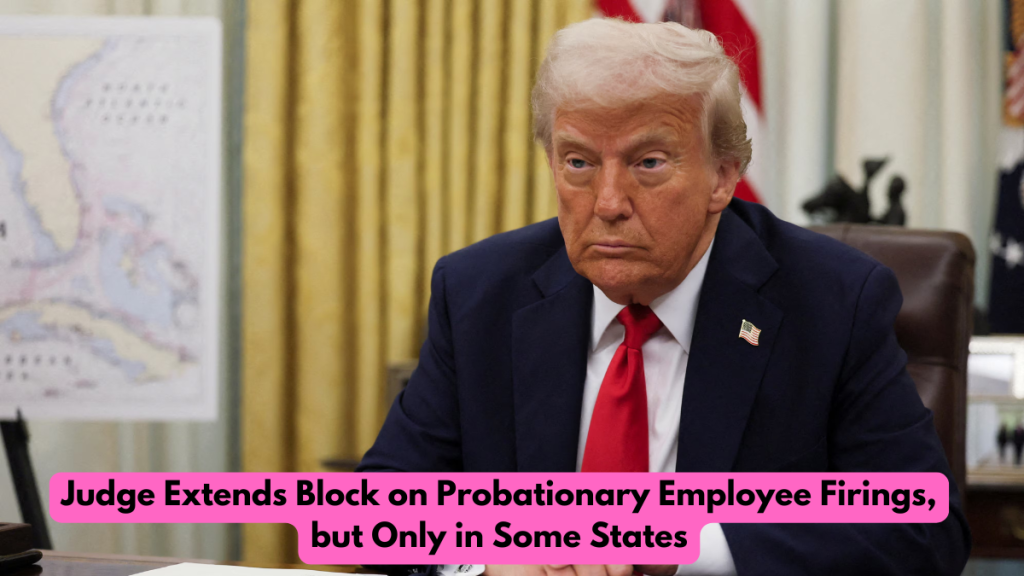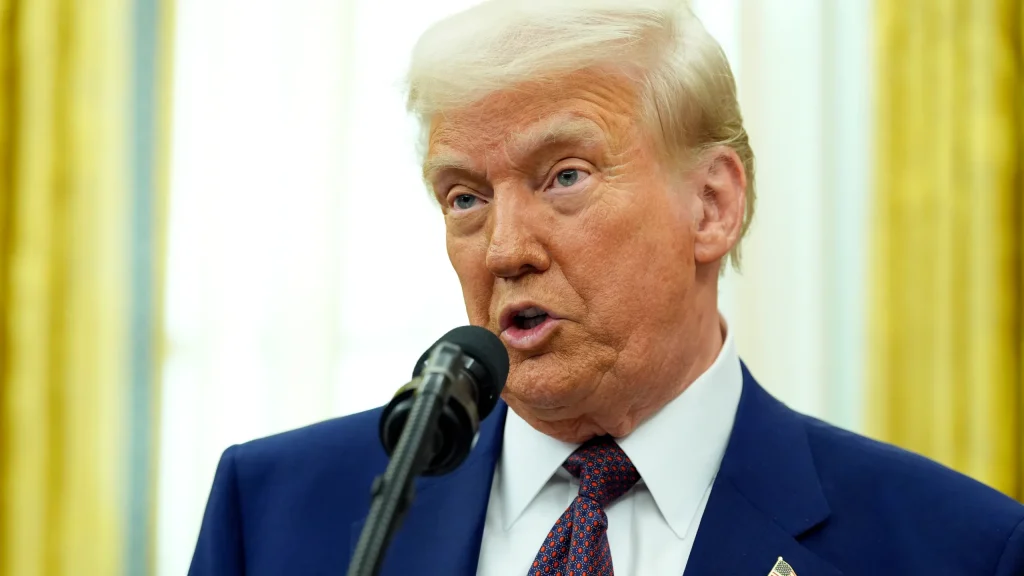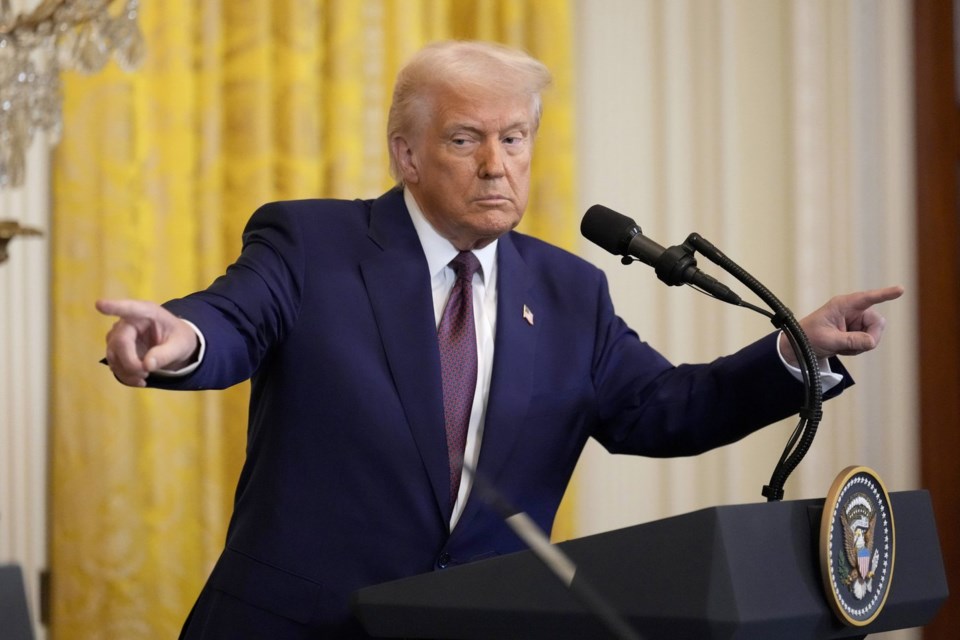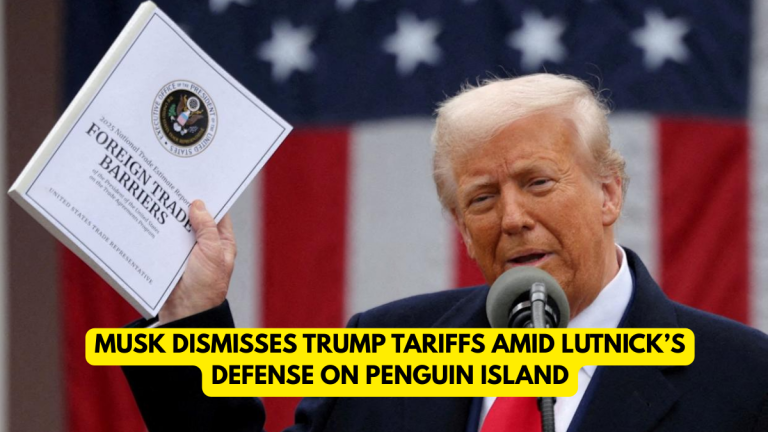
A federal judge has ruled to extend a block on the mass termination of probationary federal employees, but the decision only applies to certain states. The ruling follows legal challenges against the Trump administration’s move to dismiss thousands of federal workers without prior notice.
Background: The Mass Termination
In February 2025, the Trump administration dismissed approximately 24,500 federal employees who were still within their probationary period. The move was part of broader efforts to reshape the federal workforce but quickly met legal resistance.
A coalition of 19 Democratic-led states, along with Washington, D.C., filed lawsuits arguing that the administration violated federal labor laws. The states contended that such mass layoffs require prior notification under the Worker Adjustment and Retraining Notification (WARN) Act, which mandates advance notice for significant workforce reductions (U.S. Department of Labor).
Judge’s Ruling: Partial Reinstatement

U.S. District Judge James Bredar, based in Maryland, ruled that the administration cannot proceed with firing these employees without following the necessary procedures. His decision effectively reinstated the affected employees in the 19 states that joined the legal challenge, as well as in Washington, D.C.
While the ruling is a temporary victory for the workers, it does not extend to probationary employees in states that did not participate in the lawsuit. This means thousands remain unemployed while legal proceedings continue.
“The administration’s failure to comply with procedural requirements has placed thousands of workers in limbo,” Judge Bredar stated in his ruling. “The court cannot allow mass terminations without proper notice.”
The affected employees work in various federal agencies, including the Department of Veterans Affairs, the Environmental Protection Agency, and the Internal Revenue Service.
Ongoing Legal Battles
The Trump administration has appealed the ruling, arguing that probationary employees do not have the same protections as tenured federal workers and can be dismissed more easily under federal employment regulations (Office of Personnel Management). The administration also claims that executive authority grants broad discretion over hiring and firing decisions within the federal workforce.
A second legal challenge in California resulted in a similar ruling. U.S. District Judge William Alsup issued a temporary restraining order halting the administration’s plan to dismiss thousands of probationary employees, citing a lack of legal justification. His ruling affects employees across six federal agencies and mandates their immediate reinstatement.
“This case is about more than just employment—it’s about ensuring that federal workers receive due process,” said California Attorney General Rob Bonta. “We cannot allow abrupt terminations without accountability.”
Implications for Federal Workforce

The case has drawn widespread attention due to its implications for federal employment policies. Probationary periods traditionally serve as a testing phase for new hires, allowing agencies to assess their performance before granting full employment status. However, critics argue that recent actions set a dangerous precedent, potentially allowing mass layoffs with little oversight.
Labor unions and federal employee advocacy groups have also voiced concerns over the administration’s handling of the situation. The American Federation of Government Employees (AFGE) has called for broader protections to prevent similar firings in the future.
“This is an attack on federal workers who have dedicated themselves to public service,” AFGE President Everett Kelley said. “We must ensure that every worker is treated fairly, regardless of their probationary status.” (AFGE Official Website)
What Comes Next?
With the case now heading to the appellate courts, legal experts say the outcome could significantly impact future workforce policies. If the administration’s appeal is successful, it could reinforce executive authority over federal hiring and firing practices. However, if the lower court rulings are upheld, it could establish new legal protections for probationary employees nationwide.
In the meantime, affected employees in the 19 states and D.C. have been reinstated, but those outside these jurisdictions continue to face uncertainty.
The Biden administration, along with congressional Democrats, has signaled support for stronger workforce protections, with some lawmakers pushing for legislative reforms to prevent similar terminations in the future.
As the legal battle continues, thousands of workers await a final decision on whether they will retain their federal jobs—or be left without recourse.
For updates on federal employment laws and policies, visit the U.S. Office of Personnel Management or the U.S. Department of Labor.



